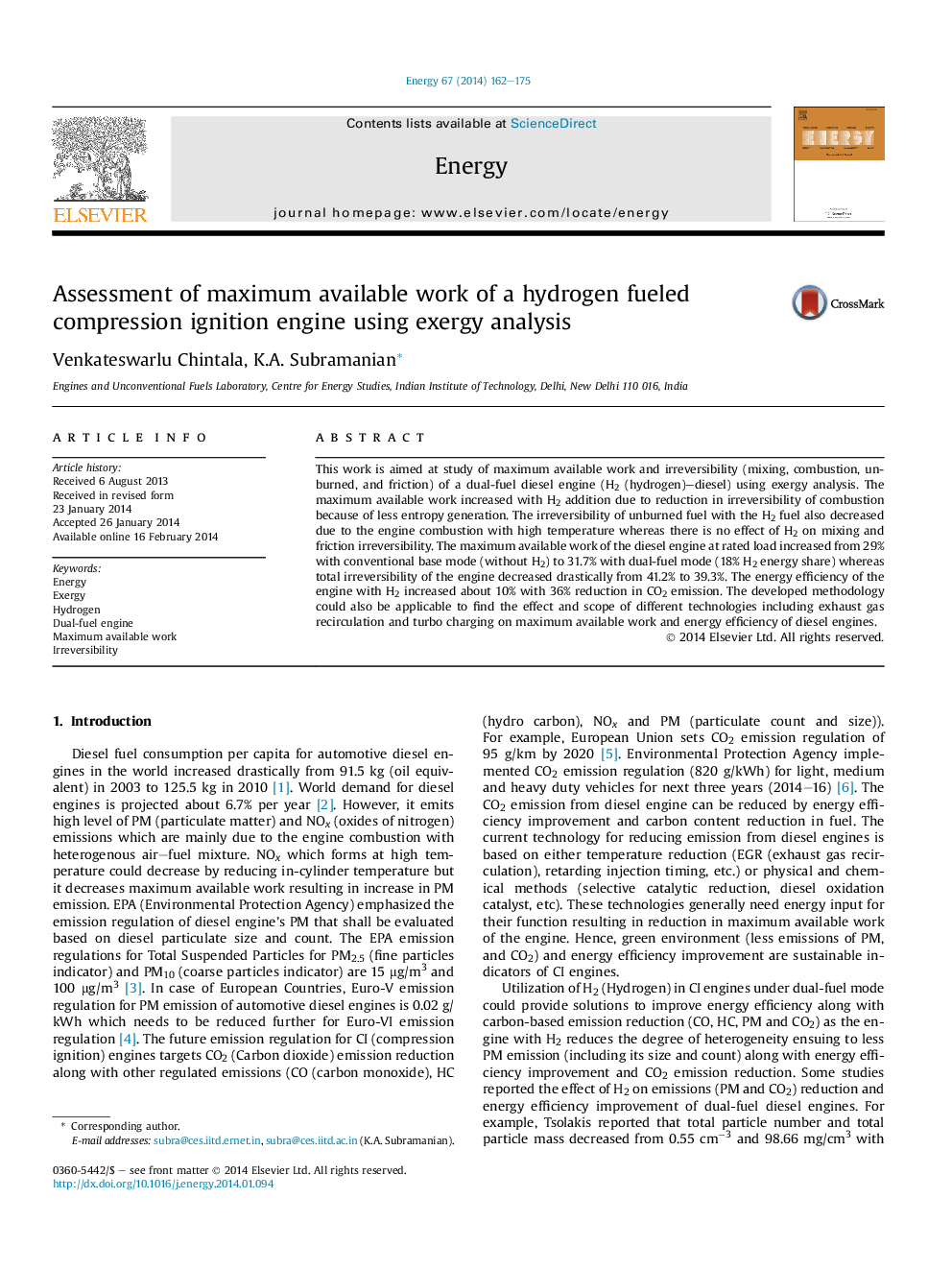| Article ID | Journal | Published Year | Pages | File Type |
|---|---|---|---|---|
| 1732547 | Energy | 2014 | 14 Pages |
•Energy efficiency of diesel engine increases with hydrogen under dual-fuel mode.•Maximum available work of the engine increases significantly with hydrogen.•Combustion and unburned fuel irreversibility decrease with hydrogen.•No significant effect of hydrogen on mixing and friction irreversibility.•Reduction in CO2 emission along with HC, CO and smoke emissions.
This work is aimed at study of maximum available work and irreversibility (mixing, combustion, unburned, and friction) of a dual-fuel diesel engine (H2 (hydrogen)–diesel) using exergy analysis. The maximum available work increased with H2 addition due to reduction in irreversibility of combustion because of less entropy generation. The irreversibility of unburned fuel with the H2 fuel also decreased due to the engine combustion with high temperature whereas there is no effect of H2 on mixing and friction irreversibility. The maximum available work of the diesel engine at rated load increased from 29% with conventional base mode (without H2) to 31.7% with dual-fuel mode (18% H2 energy share) whereas total irreversibility of the engine decreased drastically from 41.2% to 39.3%. The energy efficiency of the engine with H2 increased about 10% with 36% reduction in CO2 emission. The developed methodology could also be applicable to find the effect and scope of different technologies including exhaust gas recirculation and turbo charging on maximum available work and energy efficiency of diesel engines.
